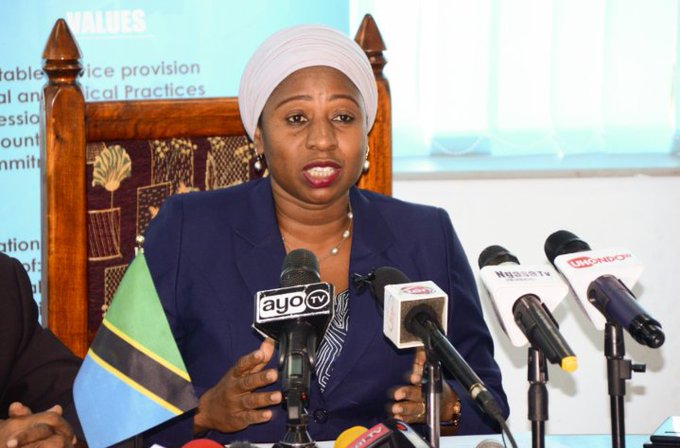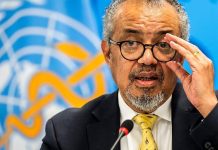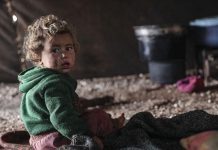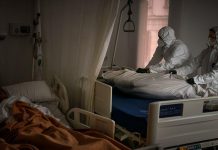AfricaPress-Tanzania: AS the United States of America announces a US Dollars 1 million (about 2.3bn/-) health assistance package for Tanzania in response to COVID-19, a third patient has so far recovered and been discharged from a treatment Centre in Ngara District in Kagera Region.
Minister for Health, Community Development, Gender, Elderly and Children, Ms Ummy Mwalimu said a recovered patient had a history of visiting the Democratic Republic of Congo (DRC) and Burundi before being diagnosed with the virus.
“God is good as there are no new cases of COVID-19 recorded in our country while another patient in Kagera has recovered, bringing the total number of the recovered patients to three,” Ms Mwalimu said in a statement released yesterday.
Ms Mwalimu further said the remaining patient in Arusha had tested negative; the patient will be tested again while in his 14 days under observation to prove if they can discharge the person.
“We now have 16 patients in Dar es Salaam, Arusha and Zanzibar; they are all progressing well,” she said.
She further said that the ministry had issued 16,000 masks, 8,000 gloves, Personal Protective Equipment (PPE) and Chlorine tablets for sanitizers to the Police Force and Prisons Department.
Apart from protective equipment, the ministry will also provide training to them on preventive measures as they undertake their duties.
The assistance by the US government will help provide risk communication, water and sanitation, infection prevention and control, public health messaging and more in Tanzania.
According to a statement posted on their website across the board, they are working diligently to prioritise their assistance to those communities most in need.
“So far, our assistance is mainly medical assistance and supplies. However, these efforts will soon be supplemented by this additional assistance to bolster our partners’ medical systems and mitigate the broader economic, stabilisation, and security effects of the outbreak,” the statement read in part.
Meanwhile, a call for beefing up isolation centres has been made after the occurrence of incidents that involved some individuals placed under quarantine escaping.
On Thursday, Iringa District Commissioner (DC) Richard Kasesela revealed that a Norwegian national who was under mandatory quarantine in Dar es Salaam escaped to Iringa Region and that authorities had succeeded to track and get hold of the foreigner.
“I received a telephone call from Kinondoni District Commissioner (DC), Mr Daniel Chongolo that a person who was in an isolation centre in Dar es Salaam had escaped and was being spotted in Iringa Region. After getting the information, I communicated with the police and we were able to trace the whereabouts and later succeeded to get hold of the person,” said Mr Kasesela.
He noted that arrangements for taking the person into confinement was done with the help of Iringa Regional Medical Officer Dr Alfred Mwakalebela who gave them specialists who carried out the task.
According to the DC, the individual is said to have entered the country some five days ago and stayed under quarantine for only three days before implementing an escape plan.
The DC said upon arrival in Iringa, the Norwegian stayed in one of the homes in Iringa, prompting authorities to place the members of the host family under quarantine to monitor their health status as per the requirement.
Mr Kasesela expressed his worry that most of the designated quarantine centres were being left unguarded, giving room for the people under confinement to wander around and posing danger in the society.
He cited an example of a similar incident which occurred in the previous week involving a Malawian national whose whereabouts was yet to be established.
While contributing to the new Prime Minister’s Office budget on Thursday evening, Mchinga MP, Hamidu Bobali (CUF) raised similar concern, saying authorities should step up security at all designated isolation centres.
According to the opposition lawmaker, there was information in the public domain that some of the quarantined individuals were walking around in streets, a situation that was dangerous for other people’s health.







